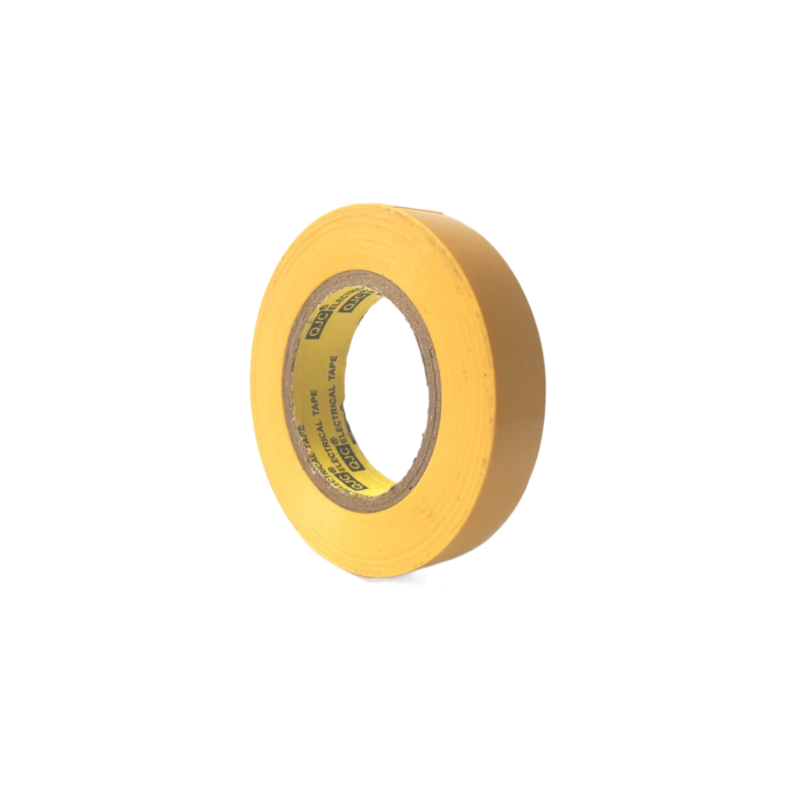The Importance of Automotive Harness Tape in Modern Vehicles
In the rapidly evolving world of automotive technology, the role of various components and materials cannot be overlooked. One such essential element is automotive harness tape. This specialized tape serves a multitude of purposes, significantly enhancing the performance, safety, and longevity of a vehicle's wiring system.
What is Automotive Harness Tape?
Automotive harness tape is designed specifically for use in automotive wiring harnesses, which are electrical systems that deliver power and signals throughout a vehicle. These harnesses are intricate networks of wires bundled together and often run throughout the various sections of a car, from the engine to the dashboard. Given the harsh conditions under which vehicles operate, it’s crucial that the materials used in these harnesses are both durable and efficient.
Key Benefits
1. Protection Against Environmental Factors Automotive harness tape is engineered to withstand extreme temperatures, moisture, UV rays, and chemicals, making it ideal for use in vehicles that face diverse and challenging environmental conditions. This protective quality helps prevent deterioration of the underlying wires, preserving the integrity of the electrical systems.
2. Reduced Friction and Noise The tape significantly reduces the friction between wires, which can occur during vibrations while driving. This minimizes wear and tear on the insulation and prevents wires from rubbing against metallic components. Additionally, it helps dampen noise, contributing to a quieter ride.
3. Insulation Properties One of the primary functions of automotive harness tape is to provide electrical insulation. This aspect is crucial in preventing shorts and ensuring that the electrical signals transmitted through the wires are not interfered with. Proper insulation helps maintain the reliability of the vehicle’s electrical components, from lighting to electronic control units.
automotive harness tape

4. Organization and Bundling Automotive harness tape aids in organizing wires, preventing tangling and confusion during installation and maintenance. This organization simplifies the troubleshooting process during repairs while improving the overall aesthetics of the wiring system. Well-bundled wires are not only easier to work with; they also enhance the vehicle's durability and functionality.
5. Adhesion and Compatibility High-quality automotive harness tape possesses excellent adhesive properties, ensuring it stays in place even under the stress of motion and temperature changes. It is compatible with various materials used in automotive manufacturing, including plastics and metals, making it a versatile choice for different applications.
Types of Automotive Harness Tape
There are several types of automotive harness tapes available, each designed for specific applications and scenarios. For instance
- Polyester Tape Commonly used due to its strong adhesion and resistance to chemical exposure. - PVC Tape Known for its flexibility and insulating properties; often used for bundling and protecting wires. - Friction Tape A type of tape that creates a strong grip on wires, ideal for applications where additional stability is needed.
Conclusion
In conclusion, automotive harness tape is a critical component in vehicle manufacturing and maintenance. Its protective, insulating, and organizational properties contribute significantly to the safety and efficiency of automotive electrical systems. As vehicles become more complex with the integration of advanced technologies, the need for reliable components such as harness tape will continue to grow. Investing in high-quality automotive harness tape not only ensures optimal performance but also enhances the overall longevity of vehicles in an increasingly demanding automotive landscape. Whether in production lines or repair shops, the emphasis on utilizing proper automotive harness tape cannot be overstated, as it plays a pivotal role in the success of modern vehicular technology.
-
Self Amalgamating Tape: Redefining Electrical Insulation and ProtectionNewsAug.07,2025
-
Seal Strip Solutions: Revolutionizing Energy Efficiency and Comfort in Modern BuildingsNewsAug.07,2025
-
High Voltage Electrical Tape: Powering Safety and Reliability in Modern InstallationsNewsAug.07,2025
-
Flex Tape Waterproof: Transforming the Future of Instant RepairsNewsAug.07,2025
-
Elevate Electrical Safety Standards with High-Performance PVC Electrical TapeNewsAug.07,2025
-
Butyl Rubber Tape: The Ultimate Solution for Reliable Sealing and WaterproofingNewsAug.07,2025
